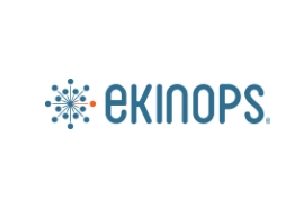Canada's BCE forms JV to fuel a US fiber frenzy
Bell Canada (BCE) made it clear that it was eager to plant its flag on US soil when it struck a deal to acquire Ziply Fiber late last year. The Canadian telco is now looking to get even more aggressive south of its border as it pursues a new fiber-focused joint venture that uses Ziply as its centerpiece.
BCE and Public Sector Pension Investment Board (PSP Investments) said Thursday (May 8) that they are forming Network FiberCo, a partnership aimed at accelerating fiber deployments via Ziply Fiber in "underserved" markets in the US. PSP Investments has agreed to commit more than $1.5 billion to the project.
Under the terms of the agreement, BCE (through Ziply) will hold a 49% stake in Network FiberCo, with PSP Investments holding 51%. BCE and PSP Investments intend to close their proposed JV in the second half of 2025, but warned that the JV is contingent on BCE closing its proposed acquisition of Ziply's existing operations.
If everything goes to plan, Ziply Fiber will become a "long-term partner" to Network FiberCo.
Bigly plans for Ziply Fiber
With the JV's proposed involvement, the fiber ambitions around Ziply will far exceed BCE's original plans for the US-based operator. Ziply already has fiber built to about 1.3 million locations in parts of Washington, Oregon, Idaho and Montana. When BCE first jumped in, the plan was to accelerate Ziply's five-year plan to bring fiber to about 3 million locations through 2029.
Network FiberCo intends to develop about 1 million fiber passings in Ziply's existing states and, in a move that looks like a page ripped from the AT&T-BlackRock Gigapower playbook, will target up to 5 million additional passings outside Ziply's traditional footprint. The plan calls for Ziply to reach as many as 8 million fiber locations. BCE did not specify a timeframe for the completion of that broader buildout.
Those fiber networks will not be built under an open access model, Mirko Bibic, BCE's president and CEO, said Thursday on the company's Q1 2025 earnings call.
Ziply, he added, "will also retain all retail customer relationships associated with the incremental fiber locations built by the strategic partnership."
Fiber focus south of the border
BCE called the joint venture a "pivotal step" in its fiber growth strategy.
The proposed JV "will significantly de-risk our future funding requirements and bring support for our US fiber growth strategy while still allowing us to proceed with our deleveraging plans," Bibic said.
BCE, Rogers Communications' chief rival, is already focused on fiber in Canada, where it has rolled out the platform to more than 7.8 million locations and is now serving about 3 million fiber broadband customers.
"The US is a natural expansion market for BCE, where we can leverage our deep expertise in building fiber infrastructure," Bibic said.
He didn't specify anticipated all-in costs for the proposed buildout, but said that the company's due diligence on the project found that the areas being targeted are "ready to be built at a low cost."
BCI and Ziply announced their original $5 billion deal in March, with plans to close it in the second quarter of 2025 – if it passes regulatory muster and doesn't get tangled up in a "Trump transaction tax" amid recent political tensions between the US and Canada.
New Street Research policy analyst and former FCC official Blair Levin does not view the proposed JV as a way to help ease the regulation process on BCE's proposed acquisition of Ziply Fiber. "I think they see an opportunity," he told Light Reading in an email exchange. Even if President Trump tries to use the FCC process to pressure Canada, "The joint venture will not be a defense," he added.
If the deal succeeds, it will mark BCE's return to the US market. Bell Canada briefly entered the US cable business in 1994 when it acquired 30% of Jones Intercable, a top ten US cable operator at the time, but that didn't last. Comcast later acquired Bell Canada's stake in Jones Intercable, followed by a controlling stake in Jones in 1999.





